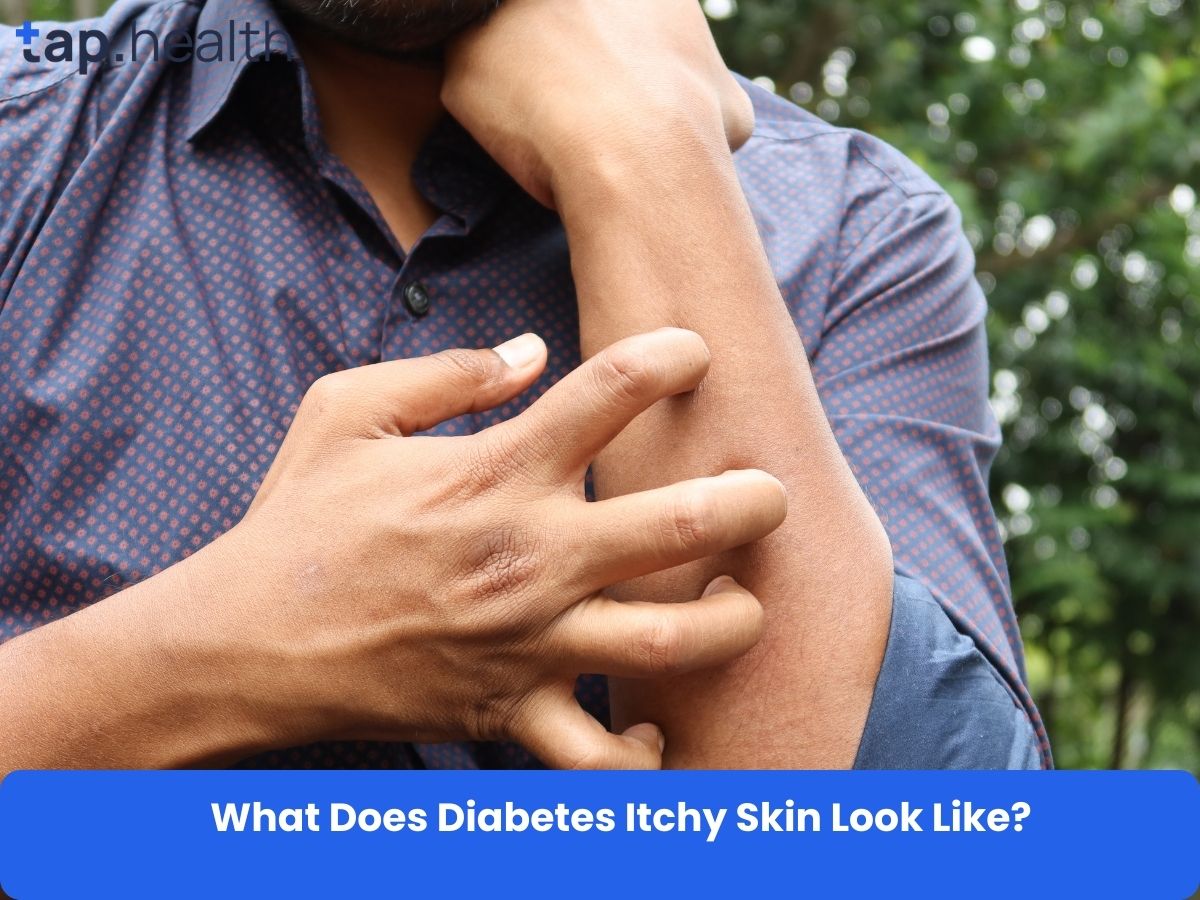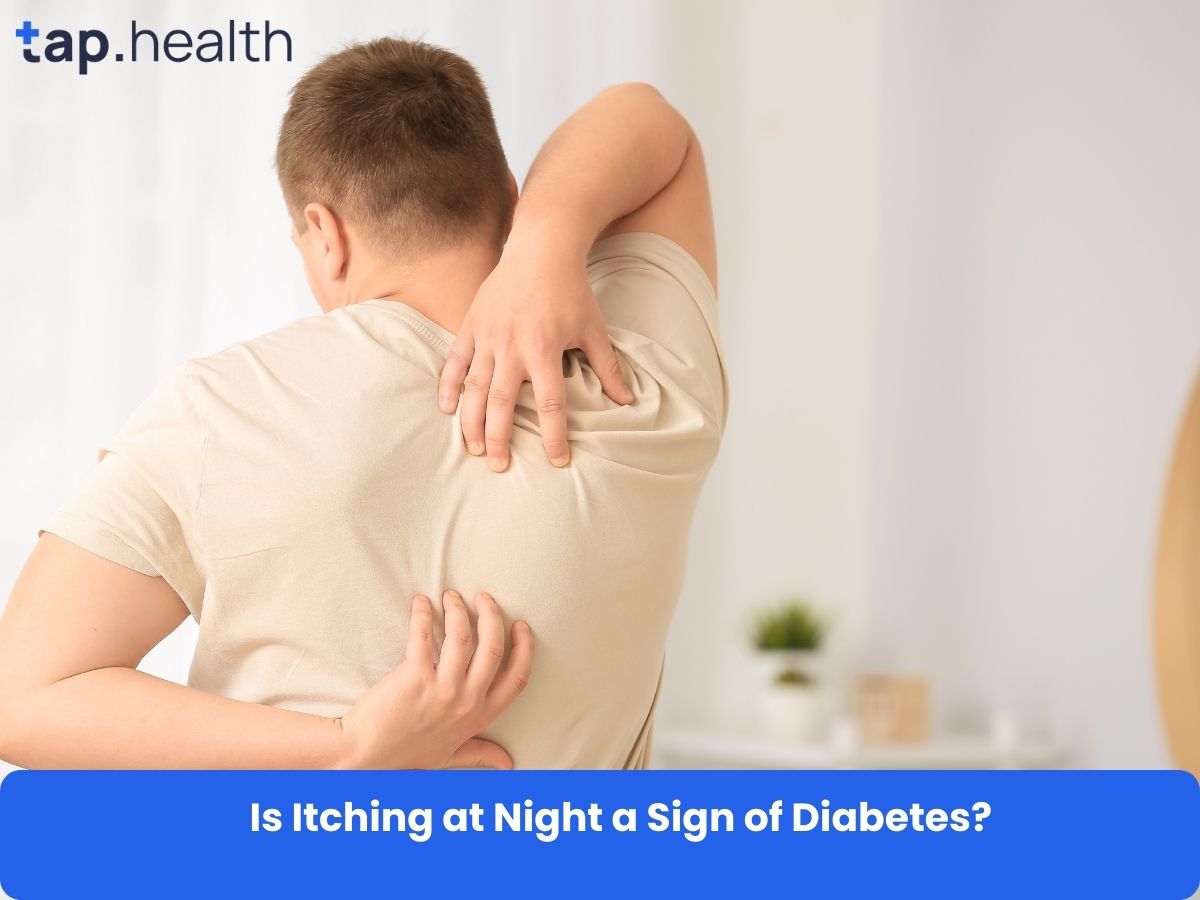Table of Contents
- Understanding Night Sweats and Diabetes
- Night Sweats: A Diabetes Symptom?
- Excessive Sweating at Night: Could it be Diabetes?
- Diabetes and Night Sweats: What You Need to Know
- Is Your Night Sweating a Sign of Diabetes?
- Frequently Asked Questions
- References
Waking up drenched in sweat during the night? You’re not alone. Night sweats are a surprisingly common experience, and while they can have various causes, they can also be a significant indicator of underlying health issues. This blog post focuses on Understanding Night Sweats: A Common Diabetes Symptom, exploring why they occur in people with diabetes and what you can do about them. We’ll delve into the connection between blood sugar levels, hormonal imbalances, and those disruptive nighttime perspirations, offering practical advice and empowering you to take control of your well-being. Let’s unravel the mystery behind those unexpected nighttime showers.
Understanding Night Sweats and Diabetes
Night sweats, characterized by excessive perspiration during sleep, are a common and often distressing symptom. In regions like India and other tropical countries, where already high ambient temperatures can exacerbate discomfort, understanding the potential link between night sweats and diabetes is crucial. Studies suggest a significant correlation, with diabetes increasing the risk of various sleep disorders.
The Connection Between Diabetes and Night Sweats
One key factor linking diabetes and night sweats is the impact on the autonomic nervous system. Fluctuations in blood sugar levels, a hallmark of diabetes, can disrupt this system’s regulation of body temperature. This disruption can lead to episodes of intense sweating, particularly at night when the body is at rest. Furthermore, the increased risk of sleep apnea, a condition closely linked to diabetes (with a 70% increased risk, according to research), further contributes to night sweats. For a deeper understanding of this connection, please refer to our article on The Connection Between Diabetes and Sleep Apnea. Sleep apnea disrupts sleep cycles and can trigger hormonal imbalances, resulting in excessive perspiration.
Managing Night Sweats in Tropical Climates
For individuals in India and other tropical countries, managing night sweats associated with diabetes presents a unique challenge. The already warm and humid environment can intensify the discomfort. Practical strategies include: wearing lightweight, breathable cotton clothing, maintaining a cool bedroom temperature, and adjusting bedding to enhance airflow. Regular blood sugar monitoring and adherence to a prescribed diabetes management plan are also essential to minimize night sweats. Consulting a doctor is vital for accurate diagnosis and personalized management strategies to improve sleep quality and overall well-being. Don’t hesitate to seek professional help; effective management is key to living comfortably. Remember that prioritizing The Importance of Quality Sleep in Managing Diabetes is crucial for overall health.
Night Sweats: A Diabetes Symptom?
Night sweats, characterized by excessive perspiration during sleep, are often overlooked, yet they can be a significant indicator of underlying health issues, including diabetes. While not a direct symptom like high blood sugar, their occurrence, especially in individuals with other diabetes-related symptoms, warrants attention. The discomfort and disrupted sleep associated with night sweats can significantly impact quality of life, particularly in hot and humid climates prevalent across many Indian and tropical countries.
Understanding the Connection
The connection between night sweats and diabetes isn’t fully understood, but it’s likely linked to hormonal imbalances and autonomic nervous system dysfunction that can occur in people with diabetes. These imbalances can lead to increased sweating, even during periods of rest. Furthermore, uncontrolled blood sugar levels can trigger various physiological responses, including excessive sweating. It’s important to note that night sweats can also be a symptom of other conditions, so it’s crucial to consult a doctor for diagnosis. Experiencing other symptoms like feeling sleepy after eating could also be indicative of underlying health issues.
Night Sweats and Diabetes Management in Tropical Climates
In regions like India and other tropical countries, the already high ambient temperatures can exacerbate the discomfort caused by night sweats in individuals with diabetes. Managing diabetes effectively becomes even more critical, as dehydration from excessive sweating can further complicate blood sugar control. Prioritizing hydration, wearing breathable clothing, and maintaining a cool sleeping environment are essential strategies for managing this symptom in warmer climates. Remember, early detection and effective management of diabetes can significantly reduce the risk of serious complications, such as the foot ulcers that nearly 15% of diabetics experience in their lifetime, often leading to high amputation risks. It is also important to be aware of other potential symptoms, such as cold feet, which can sometimes indicate underlying diabetic issues.
Seeking Professional Help
Experiencing persistent night sweats? Don’t hesitate to consult a doctor, especially if you have other symptoms suggestive of diabetes. Early diagnosis and treatment are crucial for preventing long-term health complications. In India and across tropical regions, access to quality healthcare varies, so proactively seeking medical attention is paramount for maintaining your well-being.
Excessive Sweating at Night: Could it be Diabetes?
Experiencing drenching night sweats? You’re not alone. Many people, particularly within the 20-64 age group—representing 61% of those diagnosed with diabetes according to the International Diabetes Federation—find that excessive nighttime perspiration is a troubling symptom. In hot and humid climates prevalent in many Indian and tropical countries, differentiating between normal sweating and a potential indicator of diabetes can be challenging. This is further complicated by other factors that can cause night sweats, and understanding how How Does Hot Weather Affect Diabetes? can be particularly relevant in these regions.
Understanding Night Sweats and Diabetes
Night sweats, characterized by excessive perspiration during sleep, aren’t a direct symptom of diabetes itself, but rather a consequence of the body’s response to fluctuating blood sugar levels. High blood sugar, a hallmark of diabetes, can trigger hormonal imbalances that lead to increased sweating. This is especially noticeable at night when the body is at rest. Other factors, such as infections or medications, can also cause night sweats, making it crucial to consult a doctor for proper diagnosis. The elderly population, comprising 39% of those with diabetes, are also particularly vulnerable to experiencing this symptom. Furthermore, feeling tired and experiencing Does Sugar Diabetes Make You Sleepy? can be additional symptoms to watch out for.
What to Do if You Suspect Diabetes
If you’re experiencing persistent night sweats, coupled with other diabetes symptoms like increased thirst, frequent urination, or unexplained weight loss, it’s essential to seek medical attention. Early diagnosis and management of diabetes are crucial in preventing serious long-term complications, especially in regions with high diabetes prevalence like India and other tropical countries. Don’t hesitate to schedule a consultation with your doctor to discuss your symptoms and undergo necessary testing. Taking proactive steps is key to maintaining your health and well-being.
Diabetes and Night Sweats: What You Need to Know
Night sweats, characterized by excessive perspiration during sleep, are a surprisingly common symptom often overlooked in the context of diabetes. While not exclusive to diabetes, their presence can be a significant indicator of underlying health issues, particularly in individuals living in hot and humid climates prevalent in many Indian and tropical countries. The experience is often more intense in warmer temperatures, compounding the discomfort.
Understanding the Connection
Several factors link diabetes and night sweats. High blood sugar levels can disrupt the body’s temperature regulation, leading to episodes of excessive sweating. This is especially true during sleep when the body naturally lowers its core temperature. Furthermore, certain diabetes-related complications like infections (often exacerbated by high blood sugar) can also trigger night sweats. For example, a urinary tract infection, common in individuals with diabetes, can manifest as night sweats along with other symptoms. For smokers with diabetes, this issue is further exacerbated. Research shows smokers with diabetes face a two times higher mortality rate due to cardiovascular issues, potentially amplifying the risk of night sweats associated with underlying health complications. Understanding how diabetes affects blood flow, as discussed in How Does Diabetes Affect Blood Flow?, can also shed light on this connection.
Taking Action
If you experience frequent and unexplained night sweats, it’s crucial to consult a doctor. Proper diagnosis and management of your diabetes are paramount. In tropical regions, the added challenge of managing heat and humidity necessitates careful monitoring and proactive steps to regulate blood sugar levels. Maintaining a healthy lifestyle—including regular exercise, a balanced diet, and stress management—can significantly reduce the frequency and intensity of night sweats. Don’t ignore this potential symptom; early detection can be life-saving, especially given the increased health risks for smokers with diabetes. These considerations are especially important when Traveling with Diabetes, as managing your condition while navigating different environments can be challenging. Schedule a consultation with your physician today to discuss your symptoms and develop a personalized management plan.
Is Your Night Sweating a Sign of Diabetes?
Night sweats, characterized by excessive perspiration during sleep, are a common and often overlooked symptom of diabetes, particularly in warmer climates prevalent across India and tropical countries. While not exclusive to diabetes, their occurrence, especially alongside other symptoms, warrants attention. The discomfort is amplified in already humid conditions, impacting sleep quality and overall well-being.
Understanding the Connection
In individuals with diabetes, particularly those experiencing poorly controlled blood sugar levels, night sweats can be a manifestation of several factors. High blood sugar can trigger increased metabolic activity, leading to excessive heat production and subsequently, night sweats. Furthermore, hormonal imbalances, often associated with diabetes, can also contribute to this symptom. The prevalence of diabetes, though varying by region, is significant; data suggests approximately 35 per 10,000 U.S. youths have a diagnosed case of diabetes (CDC Data). While this statistic focuses on youth in the US, the global impact of diabetes, particularly in countries with high prevalence, is undeniable. These numbers are a wake-up call for increased awareness and early detection. For more information on early signs, you might find our article on 10 Early Signs and Symptoms of Diabetes? helpful.
What to Do if You Experience Night Sweats
If you are experiencing persistent night sweats, especially alongside other symptoms like increased thirst, frequent urination, or unexplained weight loss, it is crucial to consult a doctor. Early diagnosis and management of diabetes are key to preventing long-term complications. In the humid climate of many Indian and tropical regions, paying close attention to these symptoms is even more vital. Consult your physician immediately for proper diagnosis and a personalized treatment plan to ensure your health and comfort. Don’t ignore these potential warning signs; your well-being depends on it. Remember, fatigue is another common symptom; learn more about the connection between diabetes and tiredness in our article, Does Diabetes Make You Tired?.
Frequently Asked Questions on Night Sweats & Diabetes
Q1. What is the link between night sweats and diabetes?
Night sweats, or excessive perspiration during sleep, are often linked to diabetes due to blood sugar fluctuations disrupting the body’s temperature regulation. This disruption affects the autonomic nervous system, which controls body temperature.
Q2. Why are night sweats worse in tropical climates?
In hot and humid environments, the already disrupted temperature regulation caused by diabetes is exacerbated, leading to more intense night sweats. The heat and humidity make it harder for the body to cool down.
Q3. Besides night sweats, what other symptoms should I watch out for?
Other symptoms associated with diabetes that require immediate medical attention include increased thirst, frequent urination, and unexplained weight loss. These could indicate serious issues.
Q4. How can I manage night sweats if I have diabetes?
Managing night sweats involves creating a cool sleeping environment, wearing lightweight clothing, and most importantly, effectively managing your diabetes through medication, diet, and exercise as directed by your doctor.
Q5. Why is early detection of diabetes so crucial?
Early detection of diabetes is vital to prevent long-term complications. Addressing the issue early through proper management and treatment can significantly improve your overall health and quality of life.
References
- A Practical Guide to Integrated Type 2 Diabetes Care: https://www.hse.ie/eng/services/list/2/primarycare/east-coast-diabetes-service/management-of-type-2-diabetes/diabetes-and-pregnancy/icgp-guide-to-integrated-type-2.pdf
- What is Diabetes: https://www.medschool.lsuhsc.edu/genetics/docs/DIABETES.pdf



